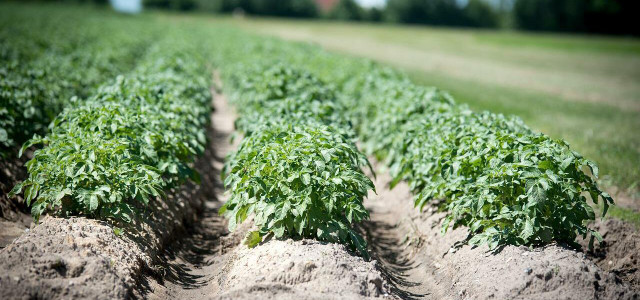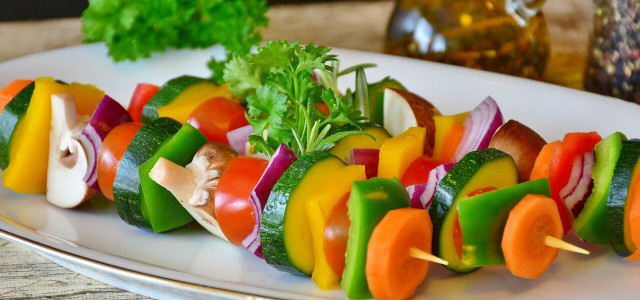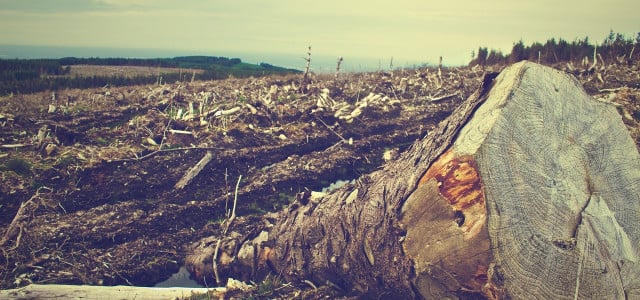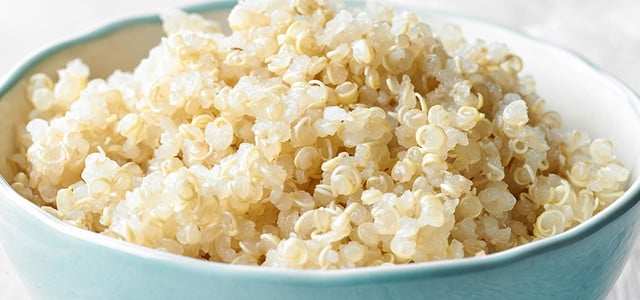Discovering more about unhealthy food to cross off your diet won’t only benefit you. It will also benefit the environment because our ‘nasty nine’ are unsustainable as well.
The EAT-Lancet report of 2019 confirmed that it can be a challenge to find and implemente diets that are good for people and good for the planet at the same time. It states that unhealthy diets pose a greater risk to human health than unsafe sex, alcohol, drugs and smoking combined. The report also warns that our food system is threatening the health of the planet at a rapid rate too.
The World Business Council for Sustainable Development highlights:
- One third of the food produced globally is lost or wasted.
- 40 percent of agricultural soil has been decimated and degraded.
- 800 million people are undernourished.
- Global food insecurity is generating civil unrest.
- Two billion adults are overweight — contributing to rapidly rising healthcare costs and chronic disease.
- Fixing this broken system will require a full-scale transformation.
Globally, we need to work together to fix this broken system. Many of our food choices are indeed negatively impacting our health and the health of the planet. Human functioning and wellbeing relies on a balanced diet of healthy food choices that are nutrient-dense. Our survival on Earth now depends on these food choices being sustainable as well. We each have a part to play in achieving the global transformation of the food system that is urgently needed.
The planetary health diet is an approach that aims to unify global sustainability and individual well-being, following the motto “sick planet, sick people”. If you are instead looking for a simple list of the worst foods to cross out of your diet, here are our top nine.
1. Cross out the Cows and the Crisis
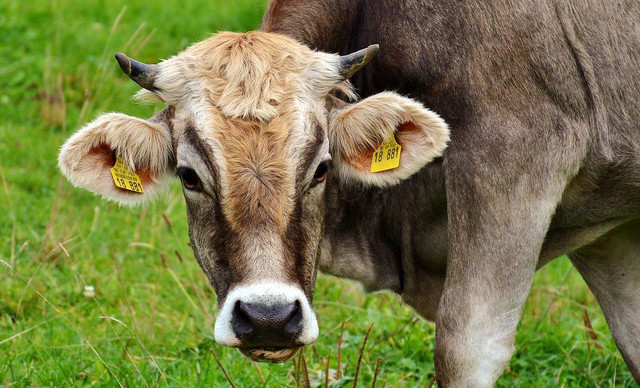
(Foto: CC0 / Pixabay / Alexas_Fotos)
Recent studies continue to highlight the growing association between the consumption of of red meat — particularly processed meat — and an increased risk of mortality and chronic disease. Regular meat consumption from beef, pork and other sources is now linked to twenty-five different disorders, elevated body mass index and chronic inflammation. The International Agency for Research on Cancer highlights red meat as a known human carcinogen.
Livestock production is a leading driver of the current environmental crisis. It majorly contributes to water consumption, deforestation, soil destruction, water contamination and greenhouse gas emissions. Meat production at its current levels is simply unsustainable, according to new research from IDTechEx. So it is definitely an unsustainable and unhealthy food to cross out of your diet. Try a vegan ground beef or impossible burger instead. And if you don’t want to abandon your inner carnivore completely, why not try a flexitarian diet and see where it leads?
2. Don’t Chicken out of Climate Control
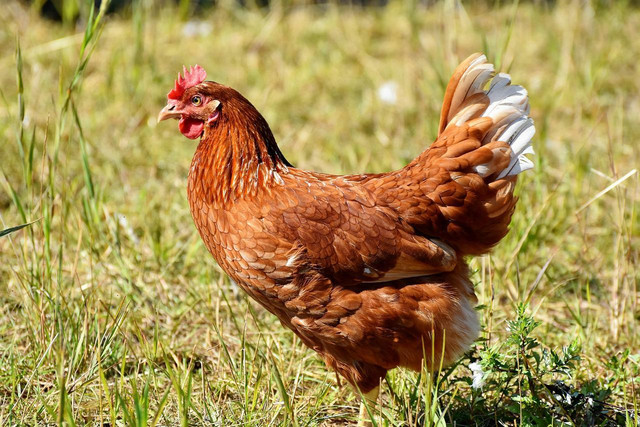


(Foto: CC0 / Pixabay / Ralphs_Fotos)
Americans eat one million chickens every hour and it looks as though the outcomes from that level of consumption are poor. Chicken is high in dietary cholesterol and fat, as well as the protein it is heavily marketed for containing. These marketing campaigns rarely mention the carcinogen PhIP though. It would appear, however, that they should.
American researchers recently found that every single grilled chicken sample taken from top restaurants in California contained the PhIP carcinogen that is linked to prostate, breast and other cancers. And that’s not all! A reliable study in 2017 was one of several that found poultry to account for the highest number of foodborne infection outbreaks, illnesses, and hospitalizations — and the second highest number of deaths. The Physicians Committee for Responsible Medicine then sued the U.S. Department of Agriculture in 2019 for ignoring concerns over widespread fecal contamination of chicken products.
If that’s not enough to class chicken as an unhealthy food to cross out of your diet, then the environmental impact might be. Chicken production has devastating consequences on water quality, contributes to global climate change and annihilates natural habitats. Greenpeace warns of the ongoing decimation of forests — a major driver of climate change — to produce soy to feed chickens. A vegan chicken pot pie might be a tasty alternative that doesn’t wreak havoc on the planet.
3. Is There Something Fishy in the Sea?
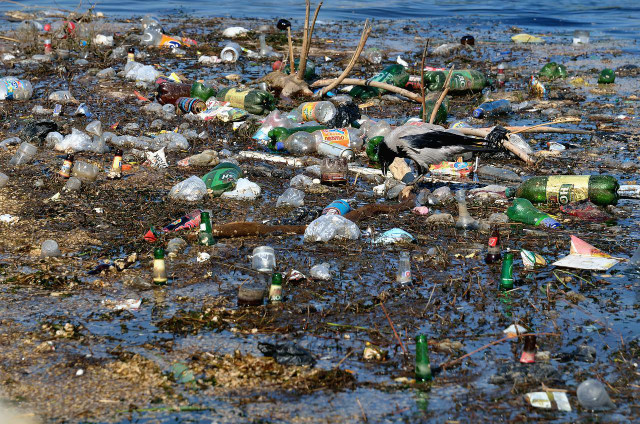


(Foto: CC0 / Pixabay / ds_30)
While eating fish and shellfish has nutritional benefits — like omega fatty acids and protein — you might want to cross this unhealthy food out of your diet too. There is plastic pollution in the ocean, as well as pesticides and a whole cocktail of chemicals. Fish live there and can take in these toxins from the water and the food they eat. Then, we eat them and the harmful chemicals they contain. A great example for this is swai fish, an exotic species that contains lots of toxins — only one of several reasons to avoid buying or consuming it. There are proponents of the pescatarian diet, too, where you cut out other animal products but still consume fish and seafood. You can learn more about it in our guide.
Metals like mercury and industrial chemicals called PCBs (polychlorinated biphenyls) can build up in their bodies over time and are known toxins to fish and humans. Results from research by the Environmental Protection Agency (EPA) show that mercury and PCBs were detected in every fish sample from all 500 lakes and reservoirs sampled. And that’s not all. Our fish also appear to be heavily medicated.
After a drastic reduction in Florida’s bonefish populations, researchers investigating the phenomenon found that of the ninety-three bonefish sampled, all tested positive for at least one pharmaceutical drug. These medications included cardiac drugs, opioids, antifungals and psychiatric drugs. One sample tested positive for seventeen different pharmaceuticals.
Due to factors like overfishing, pollution, and ocean acidification, scientists have frighteningly predicted that our seas and oceans could be dead by 2048 if we do not change our current patterns and behaviors. The fishing industry catches over 100 million tons of wild fish and almost 50 million tons of farmed fish annually. This has a direct impact on marine habitats, ocean warming, acidification and climate change. There are many things you can do to save the ocean and yourself. Not eating fish might be one of them. Maybe try a plant-based smoked salmon or vegan imitation crab alternative instead.
4. Cross out the Dairy
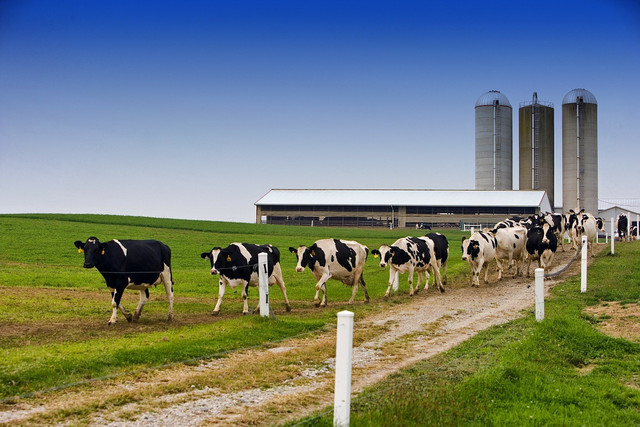


(Foto: CC0 / Pixabay / 12019)
Dairy is considered by many as an essential source of calcium and other nutrients required for bone health. Research actually suggests that dairy products have little benefit for bone health and no influence on fractures. A large study even found that the more milk men consumed as teenagers, the more bone fractures they suffered in adulthood.
Cancer appears to be another reason to cross this unhealthy food out of your diet. Dairy food products are heavily linked to many cancers and cancer mortality — breast and prostate in particular. A vegan diet has been associated with a reduced risk of prostate cancer.
It isn’t just our bodies that are at risk of decay through the consumption of dairy products. The risk of decay depends on how dairy farmers raise, feed and treat their animals. Dairy production on its current massive scale produces greenhouse gases that are driving climate change.
Dairy farms are a leading contributor to greenhouse gas emissions — like methane and carbon dioxide — during the life cycle of milk and other dairy products. Milk production also impacts the environment when pesticides and fertilizers contaminate soils and water systems. Intensive dairy farming and feed production can also lead to the loss of prairies, wetlands, and forests.
Discovering alternatives like oat milk and soy milk might help you drift away from dairy and its associated risks. Making homemade vegan cheese alternatives is easy and you won’t even have to lose baked mac and cheese from your favorites list.
5. Crack Open Something Else Instead
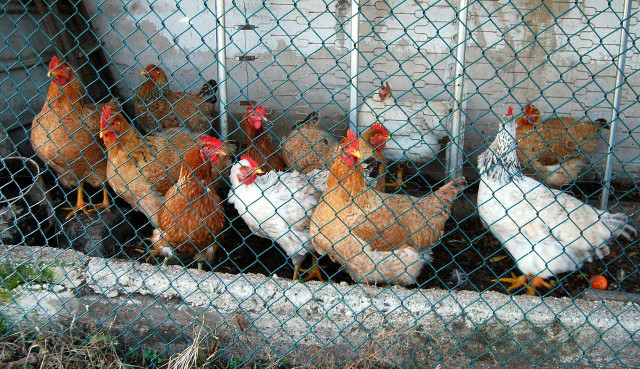


(Foto: CC0 / Pixabay / pcdazero)
The Physicians Committee for Responsible Medicine highlight the potential and likelihood of bias within privately funded research by the egg industry, and advocate for more reliable data. They have found associations between egg consumption and the following conditions:
- High cholesterol
- Cardiovascular disease
- Diabetes
- Cancer
- Death
The United States is the third largest producer of eggs in the world, behind China and the European Union. Our egg industry is being pressured from many directions to change its production practices due to concerns about hen welfare and battery cage systems. The E.U. banned these laying cages in 2012 and introduced non-cage systems like aviaries, free range and cages that include perches, areas in which the hens can forage and dustbathe, and nests.
In the United States, the volume of eggs produced in alternative systems is small and even our cage-free eggs are questionable from welfare and environmental perspectives. Free-range eggs are sourced from hens that have the freedom to live outside and are the best option for animal welfare. But even they haven’t been deemed safe. New research revealed alarming levels of highly toxic chemicals in free range eggs from seventeen different countries. These supposed healthier EU organic eggs contained a dioxin content that exceeds the acceptable EU standard. So it looks like even organic, free-range eggs might be an unhealthy food to cross out of your diet.
6. Don’t Get a Big Fat Surprise
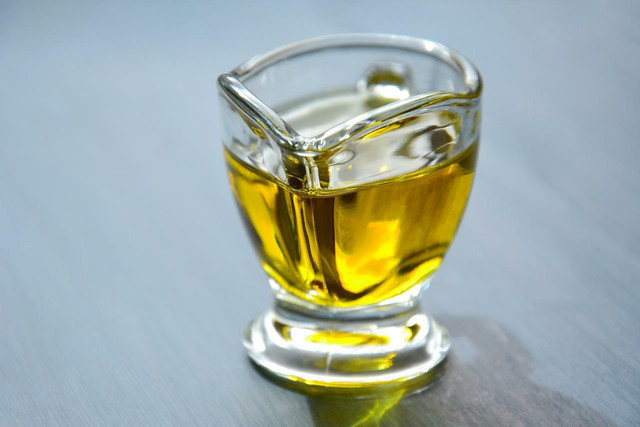


(Foto: CC0 / Pixabay / Mareefe)
You may be surprised to read that over 85 percent of global vegetable oil is produced by just four crops — palm, soybean, rapeseed and sunflower. These vegetable oils are often manipulated by adding hydrogen — in a process called hydrogenation — to achieve a reasonably solid and inexpensive product. Intensive cultivation and vegetable oil processing stages are major sources of greenhouse gas emissions and a source of major controversy and debate.
The FDA has banned the process of partial hydrogenation because of a high concentration of man-made and deadly trans fats. These are the worst kinds of fat we can eat and are heavily linked with a huge range of sometimes fatal health conditions — particularly heart attacks — and are no longer recognized as safe.
The FDA does still allow products made from full hydrogenation to be sold. However, hydrogenation also creates trans fats — just not as many. Items containing these oils are generally unhealthy foods to cross out of your diet. The most common places you will find hydrogenated oils are:
- Fried foods and fast food
- Margarine
- Peanut butter
- Baked goods, cakes, candy
- Crackers
- Microwave popcorn
- Frozen pizza
- Refrigerated dough, such as biscuits and rolls
- Coffee creamers
Animal fats and vegetable oils are regulated under the same requirements as petroleum and non-petroleum oils, according to the Environmental Protection Agency (EPA). These oils all share common physical properties and produce similar environmental effects. Like petroleum oils, vegetable oils and animal fats and their constituents can:
- Coat animals and plants with oil and suffocating them
- Be toxic and form toxic products
- Destroy future and existing food supplies, breeding animals and habitats
- Produce rancid odors
- Be flammable, destroy shorelines, and block water treatment plants
- Form products that remain in the environment for many years
According to a report by the Edible Fats and Oils Collaboration, our decisions should consider the full range of social and environmental issues when selecting vegetable oils. They advocate against boycotting one oil — like soy or palm due to deforestation and other catastrophic environmental effects — because demands will grow for others and cause the same impacts elsewhere. Choosing the least processed, organic and locally traded vegetable oil you can source is the first step in the right direction.
7. Sugar and Sweeties for Pollution and Diabetes
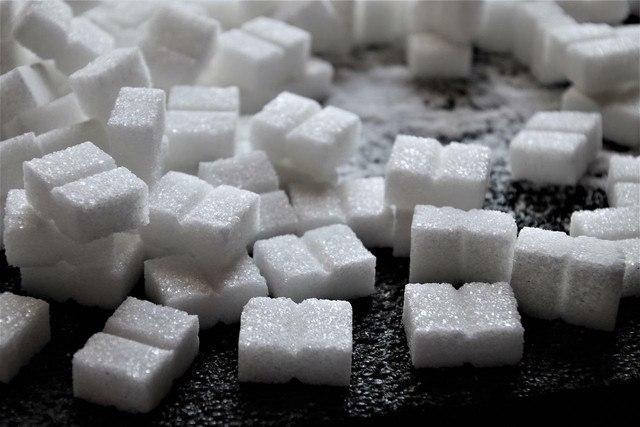


(Foto: CC0 / Pixabay / pasja1000)
Sweet, tasty and addictive — it’s sure to contain sugar! The Centers of Disease Control and Prevention (CDC) warn that Americans are eating and drinking too many added sugars in particular. Research has persistently shown that high levels of sugar and added sugar consumption contributes to a massive array of chronic health conditions — including weight gain, obesity, type 2 diabetes, inflammation, metabolic syndrome and cardiovascular disease.
The impact our sugar cravings have had on the environment might surprise you. They range from a gross loss of biodiversity to contaminated water systems. U.S. sugar production has increased from six million short tons raw value (STRV) to nine million STRV since the 1980s and has seen widespread acreage expansion.
The WWF advocates for improved and sustainable sugar production because of the following impacts:
- Loss of natural habitats
- Intensive use of water
- Heavy use of agricultural chemicals
- Discharge of polluted runoff
- Air pollution
- Degradation of wildlife, soil, air and water in areas where sugar is produced and in nearby downstream ecosystems.
To live longer, healthier lives on a healthier planet, we Americans need to consume less sugar and added sugars. Get some tips for dealing with sugar withdrawal before you start figuring out how to cut out sugar from your daily diet. Also learn how to recognize and deal with a sugar headache. There are many powdered sugar substitutes you can try if you’re into baking and desserts, or raw honey makes a deliciously sweet addition to any food or drink, and has health benefits on top.
8. Don’t Refine While You Dine
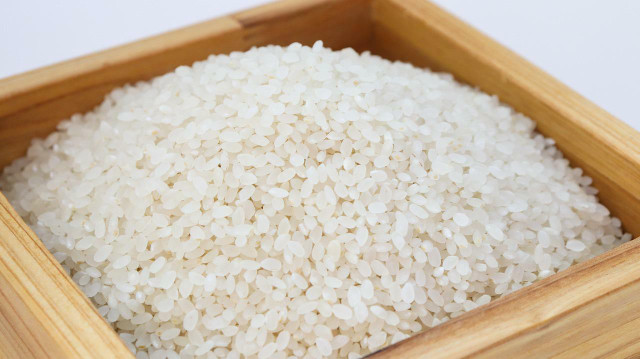


(Foto: CC0 / Pixabay / allybally4b)
You might be surprised to find grains and unhealthy in the same sentence. Many of us see the word grain as an ingredient and think we are making a healthy and sustainable choice. And we would be correct — provided the grain is whole and not refined. Whole grains in the diet improve metabolism, fiber intake, glycemic control and insulin sensitivity. When they are refined however, they lose most of their healthy benefits.
A refined grain has undergone processing that removes the husk, bran and germ of the grain — or the nutrient dense parts with all the benefits. They are then fortified with synthetic forms of nutrients during an intense refining process. Each step in the food system — food production, processing, transportation, storage, distribution and marketing — has some impact on the environment. So, the less processed your grain, the healthier it is for you and the planet.
Refined grain intake is widely associated with adverse health outcomes — including increased risk for cardiovascular disease, type 2 diabetes, metabolic syndrome and obesity. High intake of refined grains is also linked to an increased risk of colon and gastric cancer. White flour and white rice are the most commonly consumed examples of refined grains. Global rice production alone could now be doing as much harm as 1,200 average-sized coal power stations, according to the Environmental Defense Fund. So, maybe refined grains are indeed another unhealthy food to cross out of your diet.
9. Don’t Take the Planet With a Pinch of Salt
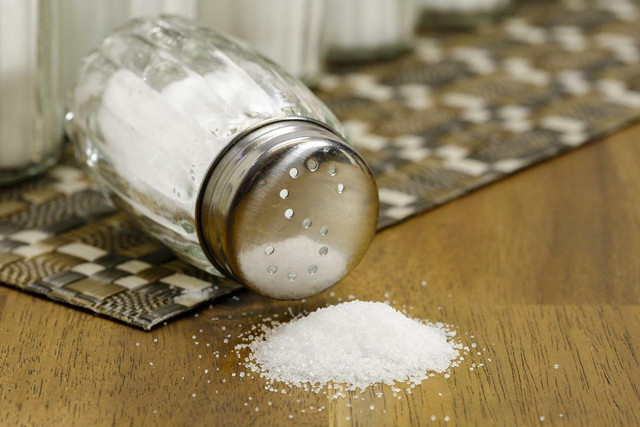


(Foto: CC0 / Pixabay / Bru-nO)
Salt — a well known unhealthy food to cross out of your diet according to the American Heart Foundation and others. Excess salt in the diet can lead to high blood pressure, cardiovascular disease, stroke and loss of calcium from bones. Most Americans consume far more salt than our bodies need.
Environmental impacts of salt harvesting depend on the method. Even the most sustainable method — solar evaporation — can cause wildlife issues. Briny ponds that salt is harvested from provide sanctuary for many species, particularly birds. The concentrated liquid that remains after harvesting can be harmful to wildlife, fish and plants.
Salt itself is also associated with damage to roads and vehicles due to its corrosive properties, but this is primarily a road salt issue. Lowering your own salt intake and crossing added salt out of your diet will benefit your heart and the beat of the planet. Knowing how much salt is too much is a good place to start.
Read more:
- 3 Tasty Vegan Donut Recipes To Satisfy Your Sweet Tooth
- 11 Superfoods for Energy, but Also Sustainability
- Plastitar: A New Type of Pollution, Thanks to Oil Spills and Microplastics
Important Information regarding Health-related Topics.
** Links to retailers marked with ** or underlined orange are partially partner links: If you buy here, you actively support Utopia.org, because we will receive a small part of the sales proceeds. More info.Do you like this post?






